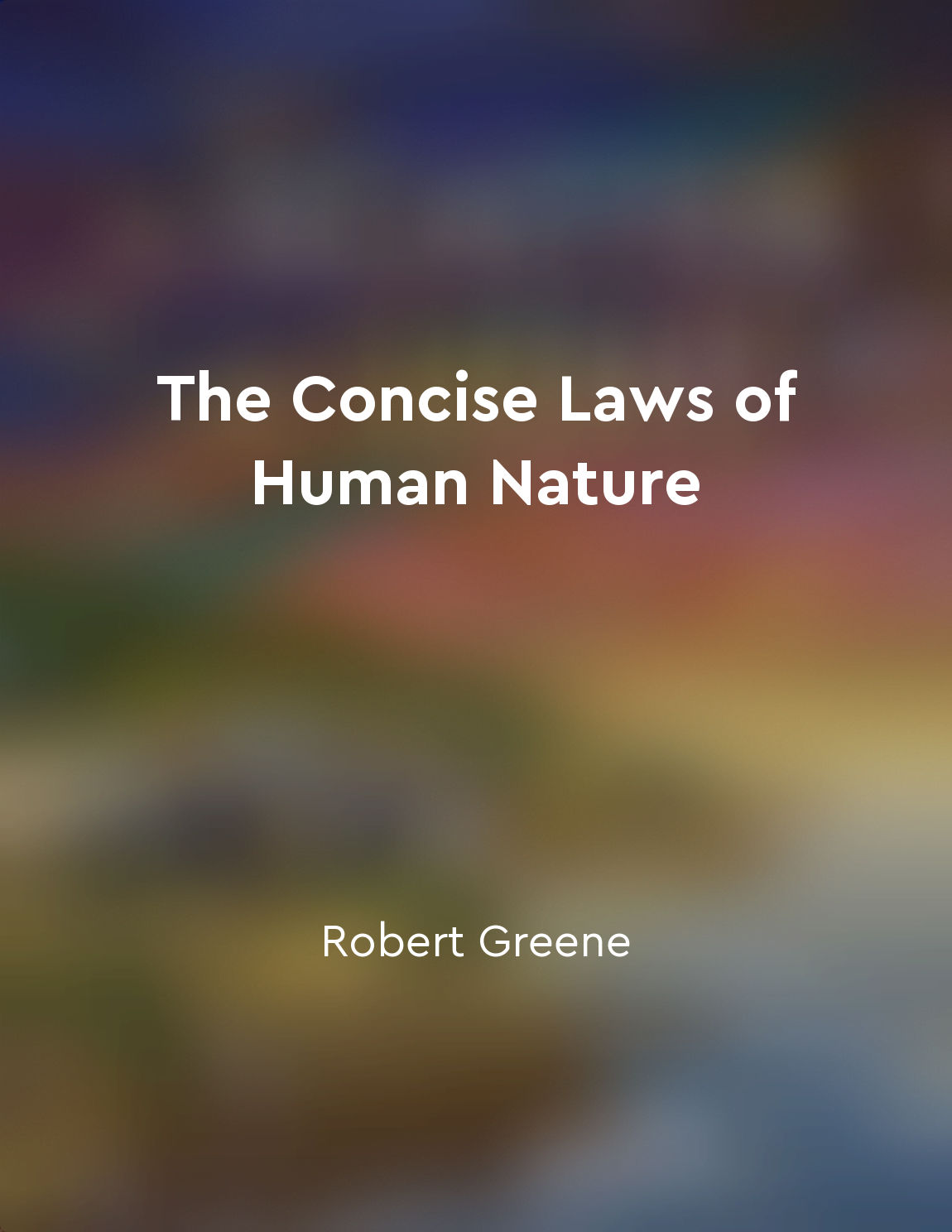Audio available in app
The human mind is prone to cognitive biases and faulty reasoning from "summary" of The Concise Laws of Human Nature by Robert Greene
The human mind, despite its complexity and capacity for intelligence, is not infallible. It is, in fact, remarkably prone to cognitive biases and faulty reasoning. These biases and errors in thinking are deeply embedded in our psychological makeup, manifesting themselves in a myriad of ways in our everyday lives. One of the most common cognitive biases that affect our reasoning is confirmation bias. This bias leads us to seek out information that confirms our preconceived beliefs and ignore or dismiss anything that contradicts them. As a result, we often overlook valuable insights and perspectives that could challenge or expand our understanding of the world. Another prevalent cognitive bias is the availability heuristic, where we rely on information that is readily available to us when making decisions or judgments, rather than considering all relevant factors. This can lead us to make hasty and uninformed choices based on limited or biased information, rather than taking the time to gather all the necessary data. Furthermore, our minds are susceptible to the anchoring bias, where we tend to rely too heavily on the first piece of information we receive when making judgments or estimates. This can skew our perceptions and lead us to make inaccurate assessments or decisions based on faulty or incomplete information. In addition to these cognitive biases, our reasoning is also influenced by a range of other factors, such as emotions, social pressures, and cultural norms. These external influences can cloud our judgment and lead us to make decisions that are not in our best interests or are not based on sound logic. In order to overcome these inherent biases and errors in thinking, it is crucial to cultivate self-awareness, critical thinking skills, and a willingness to challenge our own assumptions and beliefs. By recognizing and addressing our cognitive biases, we can improve our ability to make more informed and rational decisions, both in our personal lives and in the broader context of society.Similar Posts
Recognizing faulty arguments
Faulty arguments are a common occurrence in everyday life, and being able to recognize them is a valuable skill. By understandi...

Belief in miracles is irrational and goes against reason
The idea that miracles defy reason and logic is a fundamental principle that challenges the very core of our understanding of t...
Regret aversion affects decisionmaking processes
Regret aversion is a common bias that affects decision-making processes. This bias stems from the fear of making a decision tha...

Rationality is not synonymous with selfinterest
One common misunderstanding about rationality is the belief that it is always aligned with self-interest. This misconception ar...
Environmental factors impact societal progress
The idea that environmental factors play a crucial role in shaping the progress of societies is a fundamental concept in unders...
Emphasizing the importance of designing choices for better outcomes
The key idea here is that the way choices are designed can have a major impact on the outcomes that result. In other words, sma...
Avoid being manipulated by keeping your emotions in check
To prevent others from taking advantage of you, it is crucial to maintain control over your emotions. When you allow your emoti...
Memory is the residue of thought
When we think, we are using our working memory. This is where conscious thoughts occur, where we reason, solve problems, and ma...

Discovering motives
In the aftermath of a crime, understanding the motives behind the actions of individuals becomes a crucial element in solving t...

Manipulation can be used for personal gain
Manipulation is a powerful tool that can be used to achieve personal gain. It involves influencing others to act in a way that ...

